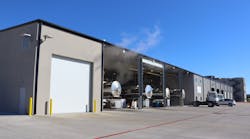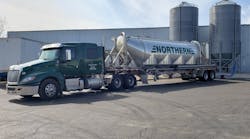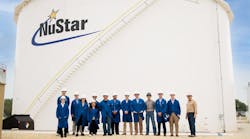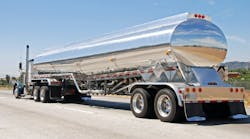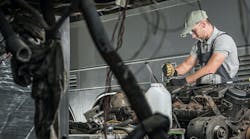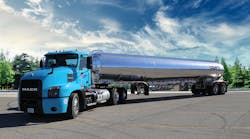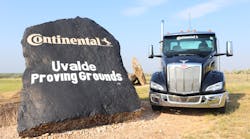The Truck Renting and Leasing Association (TRALA) and its allies in the Coalition for a Democratic Workplace (CDW) are actively opposing the ongoing anti-business agenda of the National Labor Relations Board (NLRB). TRALA has met with key lawmakers and their staff and submitted written concerns to both the NLRB and to the US Congress regarding the NLRB's pro-union agenda.
In the face of this opposition, the NLRB continues to issue rulings that further their anti-business direction, including several in August that coincide with the expiring term of former Chairman Wilma Liebman and the August 27 appointment by President Obama of a new chairman, Mark Gaston Pearce.
On July 7, 2011 TRALA and other CDW members met with members of the House Appropriations Committee in an attempt to garner support for upcoming legislative language that would stop the NLRB and Department of Labor (DOL) from enacting many of the changes proposed by the agency. In mid-July 2011, TRALA signed onto a letter to members of the House of Representatives urging support for HR 2587, a bill that would stop the NLRB from taking action on those proposals. The House is expected to vote on this measure within the next two weeks. Finally, on August 22, TRALA and other industry leaders agreed to sign onto a formal comment letter to the National Labor Relations Board issued by the CDW. On August 26, the NLRB issued a final rule stipulating that all employers subject to the National Labor Relations Act, which is nearly every private employer, must post a notice in the workplace about the right to organize a union. The rule was published in the Federal Register the following day and will take effect 75 days later.
On August 30, the NLRB ruled in favor of "micro-unions" in their decision in Specialty Healthcare and Rehabilitation Center of Mobile. Micro-union is a term being used to illustrate how the NLRB would like unions to be able to mobilize the smallest units possible from a company. In this particular case, there were nursing assistants that wanted to unionize separately from other nursing home employees and now, thanks to the NLRB, will have that right.
“While the NLRB claims that this ruling only affects health care facilities, we believe it is simply the tip of the iceberg in opening up the possibility for other companies to be allowed to form micro-unions,” TRALA officials say. “Take for example a company's truck facilities. If this ruling were to be expanded, mechanics could form a union and other maintenance workers could form another union and administrative workers at that facility could form another union. The maintenance shop would then have to negotiate different collective bargaining agreements with all three micro-unions. This would put a tremendous burden on businesses in the midst of still very uncertain economic times.”
In another decision announced on August 30, the NLRB also ruled in Lamons Gasket Co that the 2007 Dana decision, which provided employees a 45-day window in which to petition for a secret ballot election, was incorrect and thus, now employees will not be able to contest a card check with an election for a minimum of 6-12 months. Finally, the NLRB ruled on August 30 in UGL-UNICCO Service Company, a decision looking at the period following a change of ownership of a company with a unionized workforce. It overrules the 2002 Board decision in MV Transportation, which created an immediate window after the sale or merger for the union's status to be challenged by 30% of employees, the new employer, or rival union.
